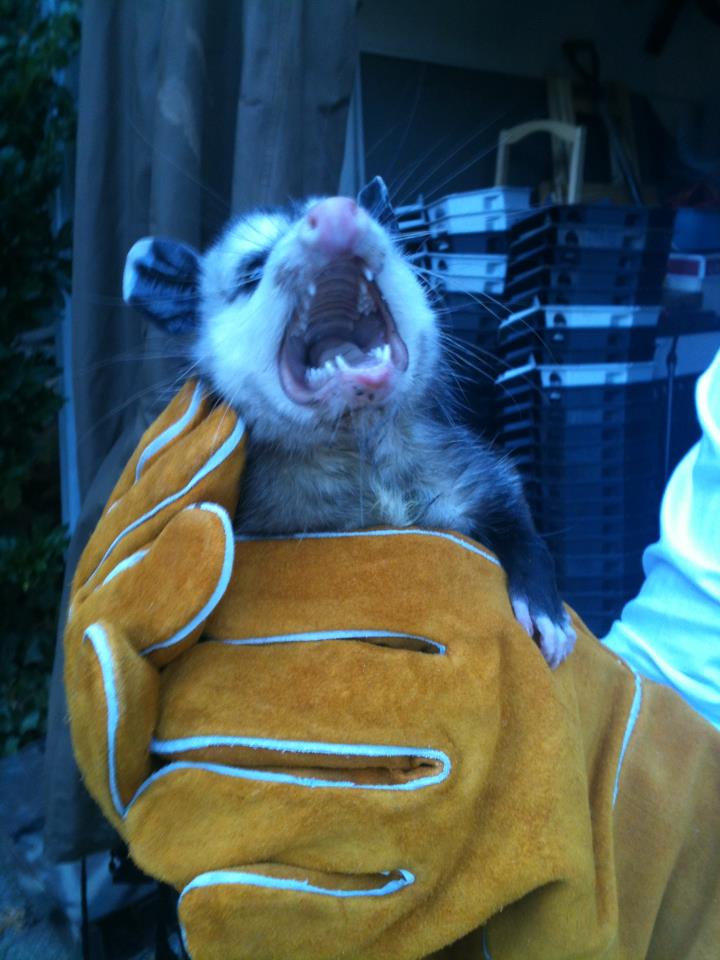Smelly, Ugly, Nasty Opossums Are Living Under My Deck
Opossums often find themselves a safe home, free from predators and with a good source of food by digging under our decks, getting into our crawl spaces and even sometimes getting in our walls. Unlike a lot of other wildlife Opossums den and hold up in or around our homes to have babies. I have to admit, although they are my personal favorite and I have a special affinity towards these little “grinners”, I know that I am somewhat alone.
The problem with Opossums making a home in or around our home is the smell & the parasites that come with them. Every single time we have issues with Opossums in a drop ceiling, in a wall or in a crawl space and we go in there to clean up the mess — the odor and fleas are overwhelming.
We find it easier to trap the Possums because it does not take a lot of trickery and the Opossum trappers do not have to outwit or outsmart these guys. Typically they see or smell food they cannot control themselves – they head right for it.
When we come out to trap the Opossums we will survey the property to see if there are any attractants. Issues which are common attractants are: pet food left outside, garages left open with pet food stored inside, fruit bearing trees, fruit on the ground, composting piles, etc. Possums normally live among us without us ever knowing so when there are incidents where a Possum is being a nuisance we try to find out what is causing the Possum’s presence to be known and smelt.
Most of the time there is not a lot of work that needs to be done to keep the Opossums out but once you do have critters “in” the location will attract other critters thanks to the odors, urine & feces left behind. All Wildlife Technicians (Possum Trappers) will provide you with a quote to seal up the area and to sanitize the area, deodorize and spray for any fleas.
When we are called out to pick up baby possums we assume that the Mother has been killed since she is not with the babies. People think we can just release the babies into the wild, however seldom is that the case. We have on staff a wildlife rehabber who tube feeds babies and then weans so they can make it on their own in the wild.

